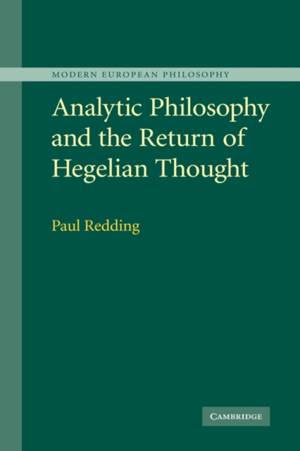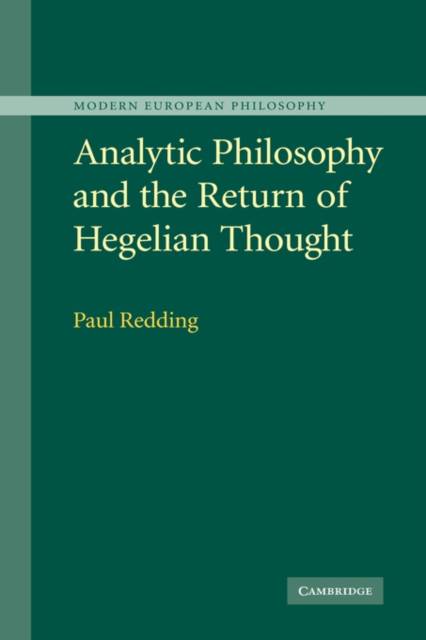
Je cadeautjes zeker op tijd in huis hebben voor de feestdagen? Kom langs in onze winkels en vind het perfecte geschenk!
- Afhalen na 1 uur in een winkel met voorraad
- Gratis thuislevering in België vanaf € 30
- Ruim aanbod met 7 miljoen producten
Je cadeautjes zeker op tijd in huis hebben voor de feestdagen? Kom langs in onze winkels en vind het perfecte geschenk!
- Afhalen na 1 uur in een winkel met voorraad
- Gratis thuislevering in België vanaf € 30
- Ruim aanbod met 7 miljoen producten
Zoeken
€ 172,95
+ 345 punten
Omschrijving
This 2007 book examines the possibilities for the rehabilitation of Hegelian thought within analytic philosophy. From its inception, the analytic tradition has in general accepted Bertrand Russell's hostile dismissal of the idealists, based on the claim that their metaphysical views were irretrievably corrupted by the faulty logic that informed them. These assumptions are challenged by the work of such analytic philosophers as John McDowell and Robert Brandom, who, while contributing to core areas of the analytic movement, nevertheless have found in Hegel sophisticated ideas that are able to address problems which still haunt the analytic tradition after a hundred years. Paul Redding traces the consequences of the displacement of the logic presupposed by Kant and Hegel by modern post-Fregean logic, and examines the developments within twentieth-century analytic philosophy which have made possible an analytic re-engagement with a previously dismissed philosophical tradition.
Specificaties
Betrokkenen
- Auteur(s):
- Uitgeverij:
Inhoud
- Aantal bladzijden:
- 264
- Taal:
- Engels
- Reeks:
Eigenschappen
- Productcode (EAN):
- 9780521872720
- Verschijningsdatum:
- 13/09/2007
- Uitvoering:
- Hardcover
- Formaat:
- Genaaid
- Afmetingen:
- 152 mm x 229 mm
- Gewicht:
- 557 g

Alleen bij Standaard Boekhandel
+ 345 punten op je klantenkaart van Standaard Boekhandel
Beoordelingen
We publiceren alleen reviews die voldoen aan de voorwaarden voor reviews. Bekijk onze voorwaarden voor reviews.









